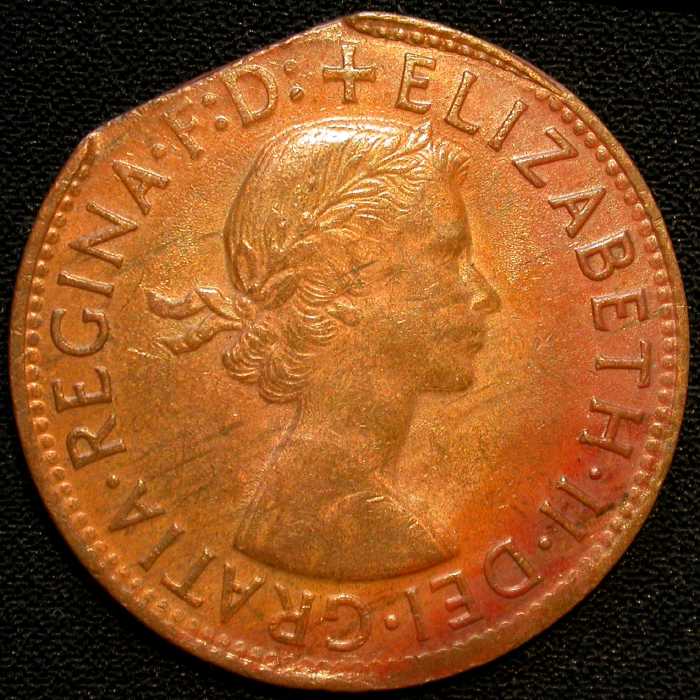 |
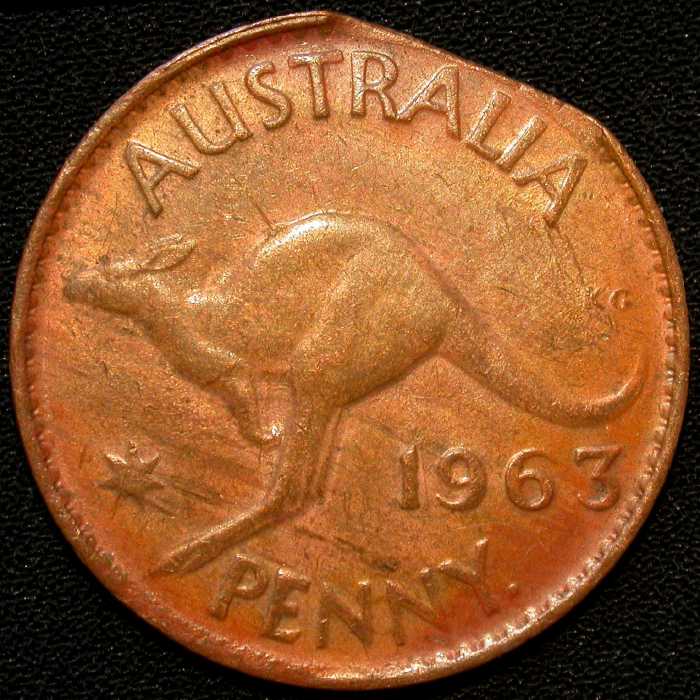 |
|
|
|
Designation |
P63P.9I |
|
Mint |
Perth |
|
Mint mark |
Dot after Y |
|
Mintage |
10,250,000 |
The penny shown on this page is a good illustration of the clipped planchet error
showing a straight clip. Clips are normally curved because the blank was punched
from an area overlapping the hole left by a previous punching. Occasionally a blank
will be punched from an area overlapping the end or edge of the metal
strip and the coin which emerges from this mishap will show a straight clip.
 |
 |
The specimen shown above illustrates the normal features of a genuine clipped
planchet error. There is a strong "Blakesley Effect" on both sides of
the coin in the area of the rim opposite to the clip. The clip itself is flanked
by "shoulders" where the metal has not flowed up to the high points of
the rim. These features are difficult for a forger to duplicate.
There are some numismatists who believe that straight clips only occur at the
end of the metal strip. In considering this hypothesis it is important to remember
that the ends of the metal strips are typically cut with mechanical shears as they
leave the rolling mill.
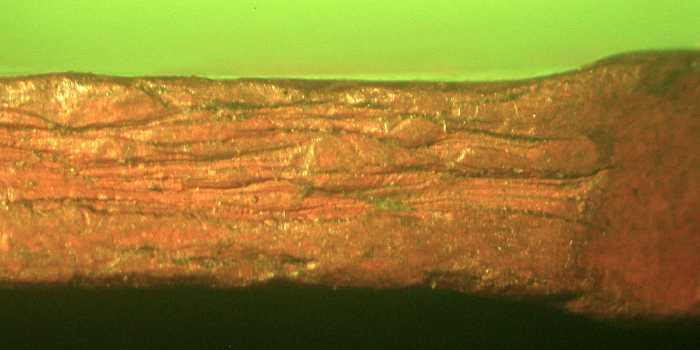 |
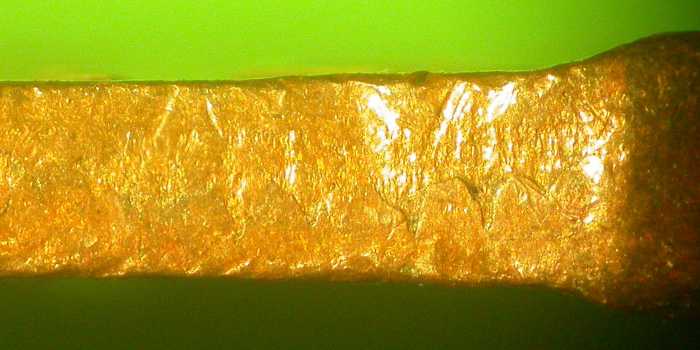 |
The upper illustration above shows an edge-on view of the clip. Note the strongly
layered texture which is the result of repeated compression of the metal strip in
the rolling mill as it was reduced to the required thickness. That this is visible
precludes any possibility of the clip region having been sheared or sawn in any
post-milling operation. The blank for this coin was stamped from a region which
was not subject to any such action and therefore not from the end of the strip.
The only remaining explanation is that it was stamped from an area overlapping the
edge.
By way of contrast, the lower image shows part of the clip region from a curved
clip coin, a 1940 penny. It was subject to shear in the
blanking press itself. Note that it shows no hint of the layering visible in the
upper image.
Just to show that issues are not always clearly defined, a third edge-on view
is shown below. This one is of a 1962 threepence straight clip error coin. Its clip
region resembles that on the curved clip penny rather than the straight clip one.
It is quite possible that this is an end clip but it is also possible that the repeatedly-compressed
ingot of quad metal did not develop the layered texture of the bronze coin.
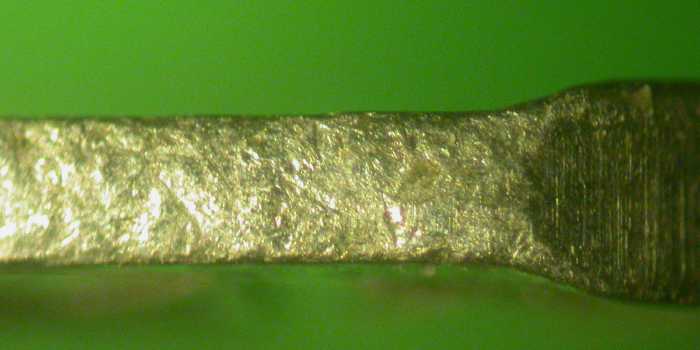 |